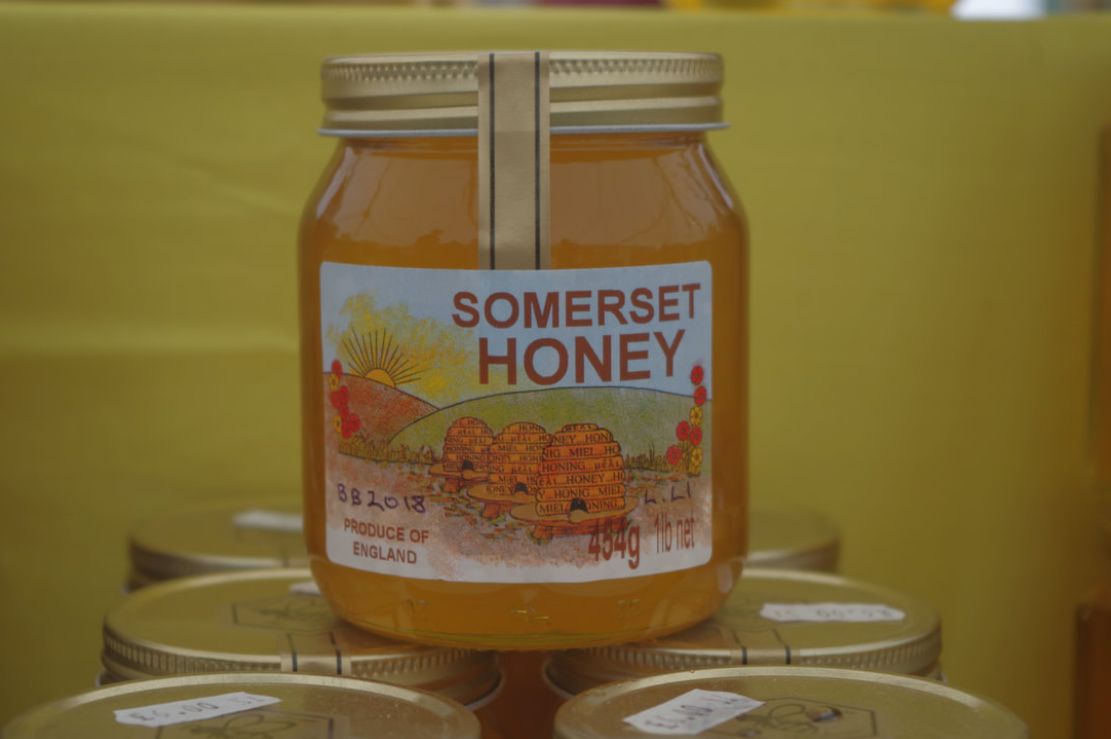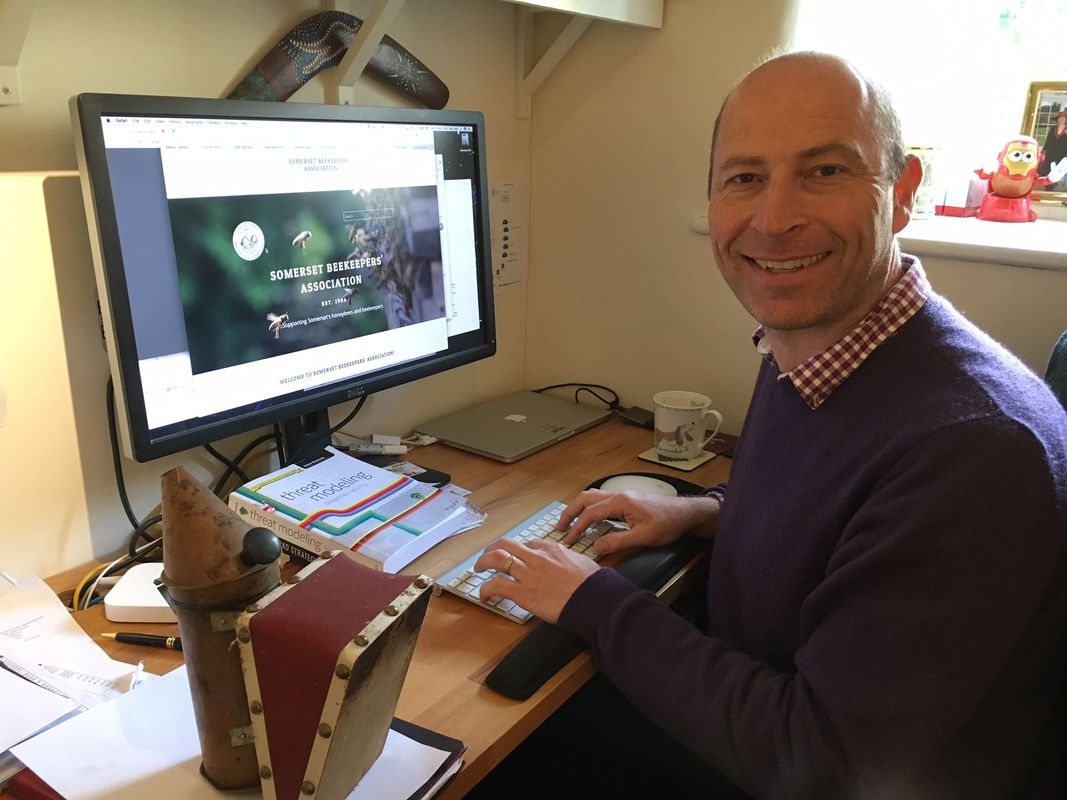 Somerset’s honey crop is one of the worst for decades say members of Somerset Beekeepers’ Association (SBKA). Some beekeepers have not harvested any honey at all, while others are substantially down on last year. The British Beekeepers Association’s (BBKA) annual Honey Survey released today (October 23, 2017) reveals that beekeepers in the South West saw their honey crop drop to 18 lbs per hive. SBKA Chairman Anne Pike said: “The glorious early Spring saw colonies build up fast but when the weather turned the honey stores were quickly consumed by the growing colonies of bees.” David Morris from Taunton has been keeping bees for 61 years and describes this season as the worst-ever and averaged just five pounds of honey per hive. “The cause is mainly weather-related,” he said. “We had a hot June followed by a wet July when what we want is the reverse to give us plenty of blackberry and clover nectar for a summer honey flow.” Local honey is in short supply and prices are expected to rise to reflect this season’s shortage. “Local honey is an extraordinary, natural product – it’s usually raw (untreated), contains local pollen and is additive-free,” added Anne. “Honey doesn’t just taste different from place to place, but from hive to hive and week to week! To use a wine term, local honey truly reflects the local terroir.” There are two honey crops a year, one in Spring and the other at the end of the summer and one hive can produce 60lb (27 kg) in a good season. Bees fly about 55,000 miles, making more than a million visits to flowers, to make just one pound of honey. Margaret Murdin, BBKA Chairman, concludes: “Everyone can play a part in helping honey bees and all the other insects they love such as butterflies and bumble bees by planting the right sort of flowers and shrubs. Check the label to see that anything you plant will be rich in nectar and pollen, as not all plants are equal in this respect. A crocus is so much better for bees than a daffodil, for example. “Our survey shows that suburban gardens and urban roof tops produce some of the best honey crops, so how we garden really can make a difference.” Ends Somerset Beekeepers (SBKA) is inviting the public to explore its new website launched today. The new website is packed with up-to-date information aimed at those who are interested in honeybees as well as beekeepers. SBKA Chairman Anne Pike said: “Our beautiful and informative new website contains information ranging from what to do if you spot a swarm to news about the latest Asian hornet sightings.” The site has been created by fellow beekeeper and IT security specialist Neil Cook from Yeovil to work on a PC, tablet and mobile. “Making the site informative and useful, but also relatively simple to navigate and ‘clean’ rather than cluttered, was a challenge,” said Neil. It took around 200 hours to build the site which is aimed at SBKA members, the public, press, and as a shop-window for apiculture. He added: “I think what is quite revolutionary, at least as far as I’ve seen in beekeeping websites, is having a central calendar and website for the whole SBKA, but with the divisional aspects updated and maintained by each division.” SBKA is a volunteer-run registered charity which works with more than 850 members and raises awareness of issues affecting honeybees more widely. Anne Pike added: “We are the voice of Somerset’s beekeepers and honeybees and this wonderful new website enables us to do this better. “Honeybees and other pollinators are having a tough time because of pests and diseases, loss of habitat and pesticides. One of our key roles is to help our members to keep healthy and strong colonies and to encourage the public to get behind pollinators.” Ends |
Archives
September 2023
Categories
All
|
Somerset Beekeepers Association Charity © 2021 Registered CIO Charity 1206483
Affiliated to the British Beekeepers Association
Click here to view our Privacy Policy
Affiliated to the British Beekeepers Association
Click here to view our Privacy Policy

 RSS Feed
RSS Feed
